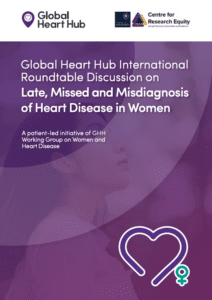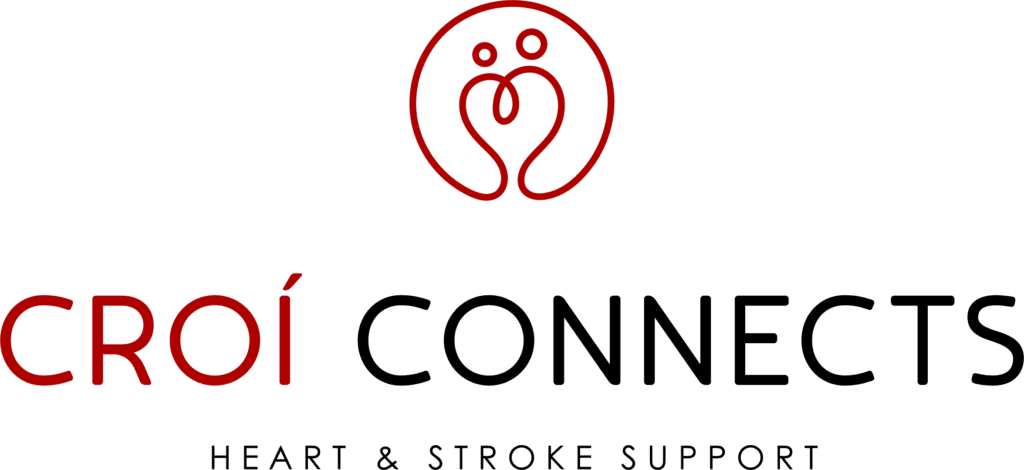
Her Final Search Campaign
Her Final Search
Croí and Global Heart Hub have partnered to launch the ‘Her Final Search’ campaign, which aims to educate about the unique symptoms of heart attack in women.
Through a series of videos distributed across social media depicting final online symptom searches of women who died of cardiovascular disease (CVD)/heart attack, this initiative educates the public on the specific symptoms that women may experience differently from men, such as jaw, neck and back pain, to help more people know when to seek help.
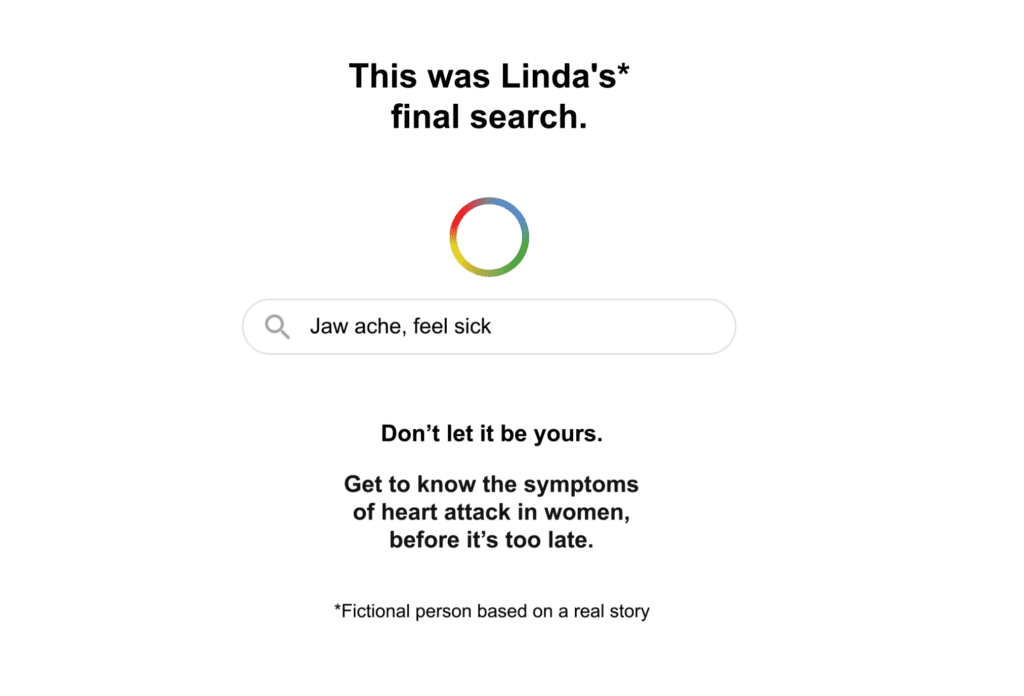
Heart Attack Symptoms for Women
Knowing the signs and symptoms is the first step to protecting your heart.
Chest pain is the most common symptom of heart attack in men and women, but women are more likely than men to have symptoms that may seem unrelated to a heart attack, such as nausea and brief pain in the neck or back.
Women often describe heart attack chest pain as pressure or tightness, but it’s possible to have a heart attack without chest pain.
Women are more likely than men to have these symptoms of a heart attack:
- Neck, jaw, shoulder, upper back or upper stomach pain
- Shortness of breath
- Pain in one or both arms
- Nausea or vomiting
- Sweating
- Lightheadedness or dizziness
- Unusual fatigue
- Heartburn, also called indigestion
These symptoms may be vague but more noticeable than chest pain.
Source: Mayo Clinic Heart Disease in Women: Understand Symptoms and Risk Factors. Retrieved from www.mayoclinic.org/diseases-conditions/heart-disease/in-depth/heart-disease/art-20046167
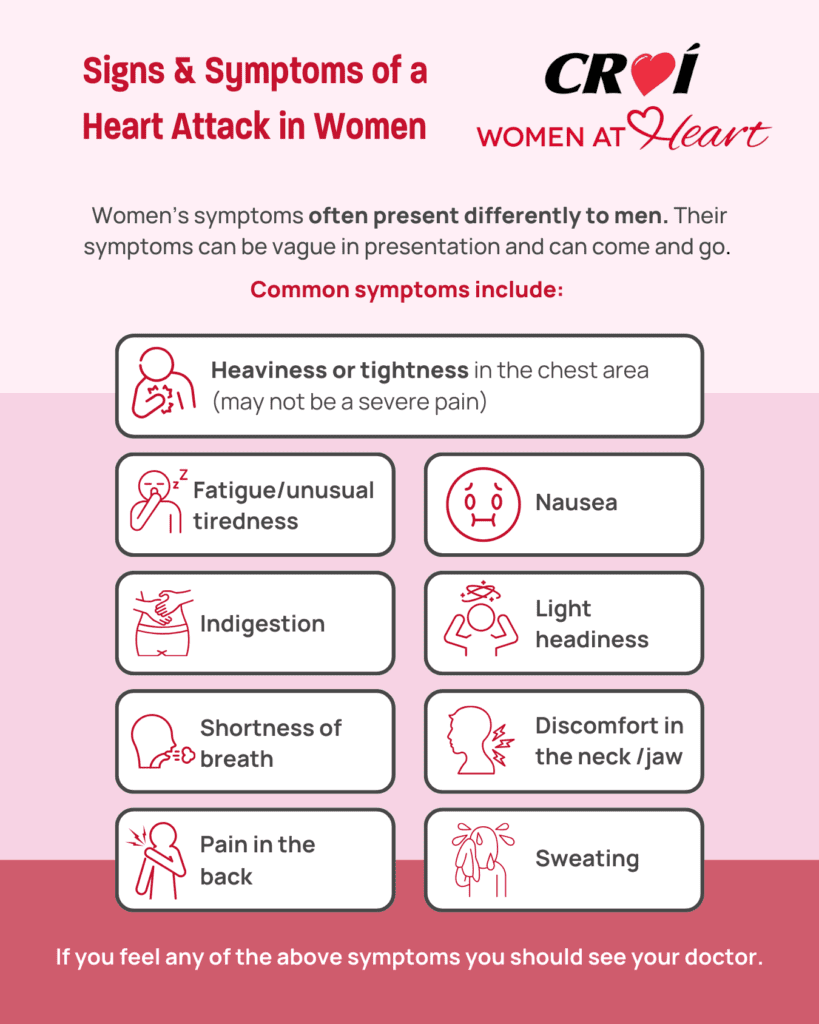
“I like to say, heart disease is the number one killer of women, but lack of awareness is a close second.” Dr Martha Gulati, Internal Medicine Cardiologist
Heart Disease Risk Factors for Women
Several major risk factors are common to both women and men, however, some play a greater role in the development of CVD in women:
Pregnancy Complications: Having certain conditions during pregnancy (adverse pregnancy outcomes) can also raise a woman’s risk of developing CVD. These conditions include:
- Gestational hypertension (high blood pressure)
- Preeclampsia
- Postpartum hypertension
- Gestational diabetes
- Diabetes
Menopause: The menopause can cause changes in your body that increase your risk of cardiovascular disease:
- Low levels of oestrogen
- Increased cholesterol
- Increased blood pressure
- Sleep problems
- Weight changes
Higher Risk Factors: Women are more disproportionately affected by the following risk factors, increasing their overall risk of CVD:
- Diabetes
- Stress
- Smoking
Information adapted from the Mayo Clinic Heart Disease in Women: Understand Symptoms and Risk Factors. Retrieved from www.mayoclinic.org/diseases-conditions/heart-disease/in-depth/heart-disease/art-20046167
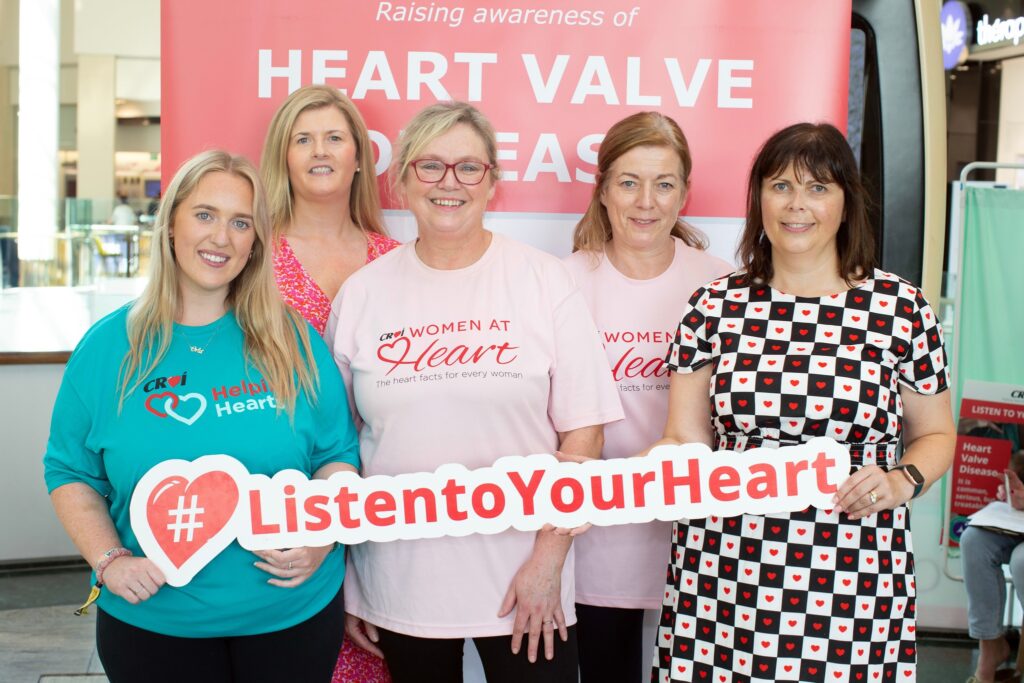

The Heart Facts
- Heart disease is one of the leading causes of death of women in Ireland and worldwide
- 1 in 4 Irish women will die from cardiovascular disease
- 4,000 Irish women died from cardiovascular disease in 2021. That’s 4,000 families without a mother, sister, aunt, grandmother – a loved one!
- Women often wait an average of 37 minutes longer than men to seek medical help during heart attacks. This delay is costing lives!
- Twice as many women die of CVD than any form of cancer
- It can affect women of any age, yet CVD in women continues to be seriously understudied, under-recognised, under-diagnosed and under-treated
In general, CVD treatment in women and men is similar. However, women are less likely to receive the treatment they need:
- Women are less likely to be treated with aspirin and statins to prevent future heart attacks, despite studies showing similar benefits in both men and women
- Cardiac rehabilitation can improve health and aid recovery from CVD, but women are less likely to be referred for cardiac rehabilitation than men
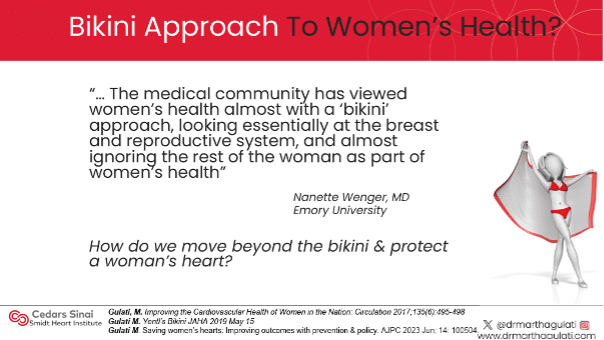
Croí Women's Heart Health Videos
Croí Resources
We have a range of information resources to help you reduce your risk of heart disease and stroke. Click on the following links:

